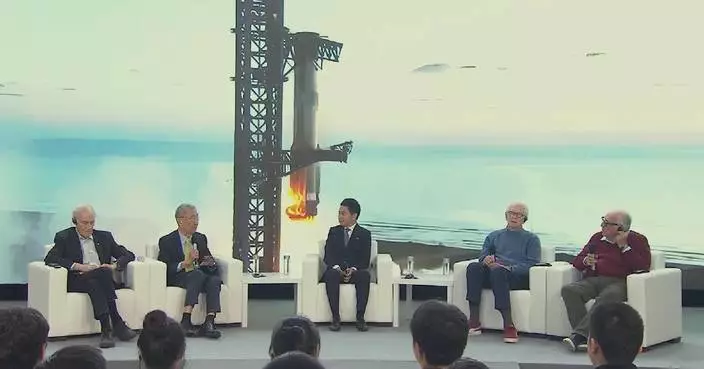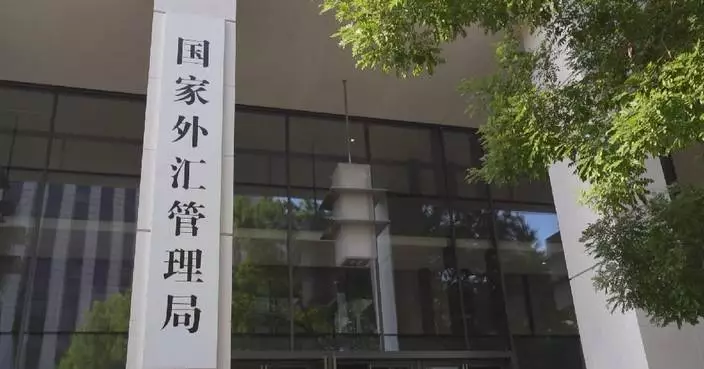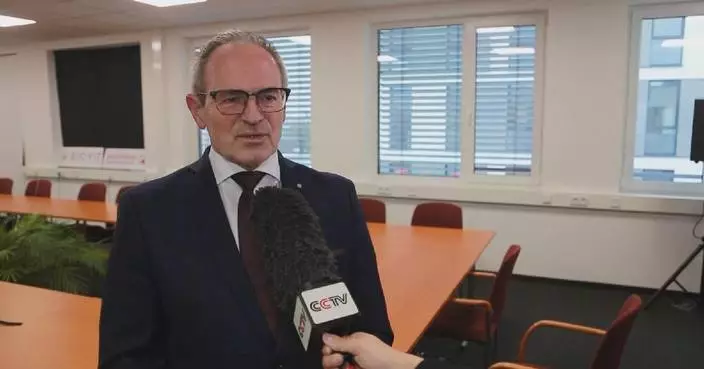Experts gathered for the 2024 World Tourism Alliance (WTA) Xianghu Dialogue in Sanya City of South China's Hainan Province, discussing strategies to boost tourism recovery and promote diversified developments in the sector.
Themed "Gear up for a New Venture," the event drew in industry leaders and experts from 32 countries and regions, sharing insights on global tourism development. Pansy Ho, Vice Chair of the World Tourism Alliance, emphasized the need to "expand the pie" by integrating culture, technology, finance, and other sectors to meet the diversified requirements of tourists.
"Tourists nowadays seek experiences that are more comprehensive, in-depth, and culturally immersive than ever before," said Ho, during her keynote speech.
Her opinions were echoed by other experts in the tourism industry.
"Meeting the needs of a diverse range of travelers requires us to make tourism products more varied. And that requires the efforts of the whole industry. We should try to provide varied tourism products, catering to individual interests such as independent travel, senior-friendly tourism products, and more," said Tong Teng, vice president of Fliggy, one of China's leading travel platforms.
The dialogue also underscored the tourism sector's role in revitalizing local communities. A joint report with the UN Tourism on local community development and sustainable tourism was released during the event, featuring case studies on how tourism can bolster local economies through arts and culture.
"There's a lack of understanding of what China is, and I would say it's very similar to Los Angeles. I've been to nine different cities in China and every single one of them offers a completely different experience, from regional cuisine, to different arts and culture, to incredible heritage and history. And I think that's is where the similarity is, culture and heritage tourism is an incredible way to revitalize urban destinations around the world," said Adam Burke, vice chair of WTA.
Established in China, the WTA is committed to promoting tourism for peace, development, poverty alleviation, and driving global tourism exchanges and cooperation at a non-governmental level.
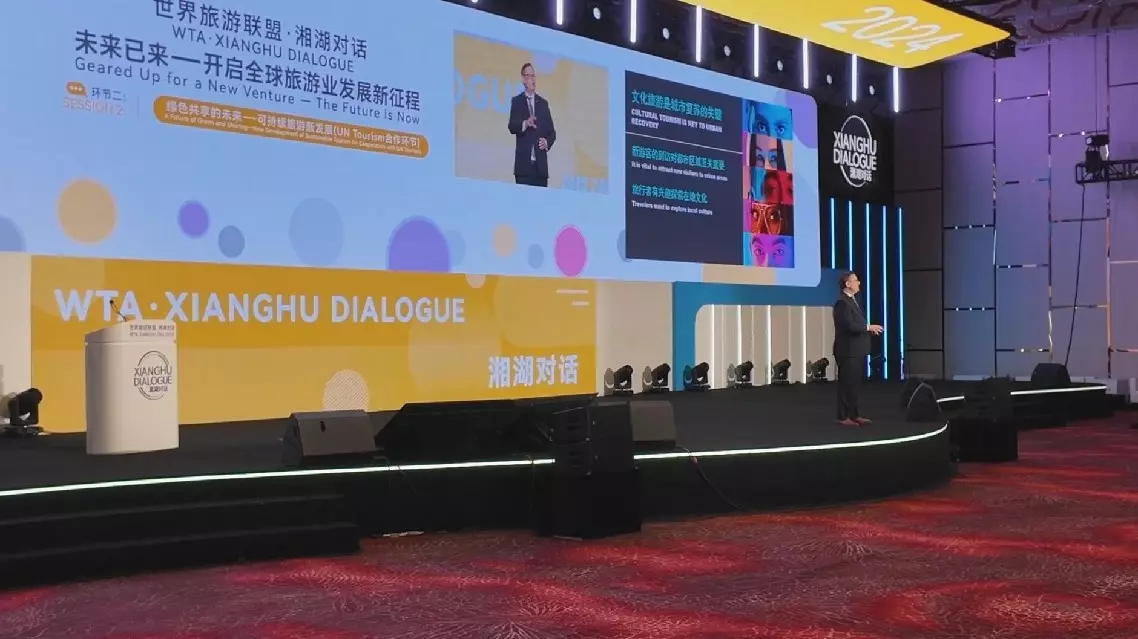
Experts convene for World Tourism Alliance dialog to enhance global tourism development
Four renowned physicists have highlighted the profound impact of artificial intelligence (AI) on advancing scientific research, while also cautioning that AI lacks the innovative capacity to generate groundbreaking theories or concepts.
The 2024 Nobel Prize in Physics went to two computer scientists, John J. Hopfield and Geoffrey E. Hinton, for their foundational discoveries and inventions that enable machine learning with artificial neural networks.
In response to the impact of this year's Nobel Prize on future physics research, David Jonathan Gross, the 2004 Nobel Laureate in Physics, highlighted John Hopfield's physics-based invention of associative memory, emphasizing its broad scientific influence and its role in shaping modern AI.
"In my opinion, it was one of the great examples of invention actually, using ideas that came from physics, which has had an enormous impact on all of the other sciences; neuroscience, biology as well as computer science. It was given to John Hopfield, who was a colleague of mine at Princeton when I was in Princeton, a first rate condensed matter theorist who got interested in how the brain works and using ideas that came from condensed matter physics, spin glasses. He came up with a very brilliant idea, how you would construct out of these spins, or analogs of spins, an associative of memory. The other half of the Nobel Prize was shared by someone who came from computer science, who perfected parts of those applications and now dominates one of the foundational aspects that led to machine learning, large language models, AI. All this came from physics. So this is very common in physics," said Gross.
Sheldon Glashow, the 1979 Nobel Laureate in Physics, said that the Nobel Prize awarded for advancements in AI aligns perfectly with Alfred Nobel's vision of rewarding developments that contribute most to human welfare, even more so than the discovery of gravitational waves.
"All one needs to do to understand this Nobel Prize is to read Nobel's will, because the prize is to be given by the idea or the development that contributes most to human welfare. However much I support the Nobel prize that was given for the discovery of gravitational waves, the discovery and development of artificial intelligence will have much, much greater effect on human welfare than gravitational waves. So, I think this was an excellent Nobel Prize," said Glashow.
While acknowledging AI's significant contribution to scientific progress, particularly as highlighted by Gross's emphasis on Hopfield's physics-based invention of associative memory, other two scientists cautioned against overestimating AI's capabilities.
Luciano Maiani, known for his prediction of the charm quark with other two scientists, said he agrees with David's views on this year's Nobel Prize. However, he then mentioned that he once faced skepticism when proposing the Large Hadron Collider (LHC) to search for the charm quark, as some Americans believed that with advanced computer programs, experiments were unnecessary. Maiani dismissed this notion as ridiculous.
"We will never be able to tell a priori if the result will be yes or no. Does charm exist? Well, it's a matter of nature, not a matter of artificial intelligence. Artificial intelligence can only collect what we know at present. But there is an unknown part of the story, and that is nature. if you don't have an experiment, you will never know," said Maiani, who is also the former director-general of the European Organization for Nuclear Research (CERN).
Moreover, Samuel Chao Chung Ting, a Chinese-American physicist who won the Nobel Prize in 1976 for discovering a new particle, cautioned that while AI is vital, it lacks the innovative capacity to conceive of fundamental breakthroughs like four-dimensional space, quantum mechanics, or relativity.
"AI is certainly important, but it lacks true creativity. It won't conceptualize four-dimensional space, quantum mechanics, or theory of relativity. These innovative ideas are beyond its capabilities," he said.
Samuel Ting is a world-renowned Chinese-American physicist. He received the Nobel Prize in 1976 for his pioneering work in the discovery of a new particle.
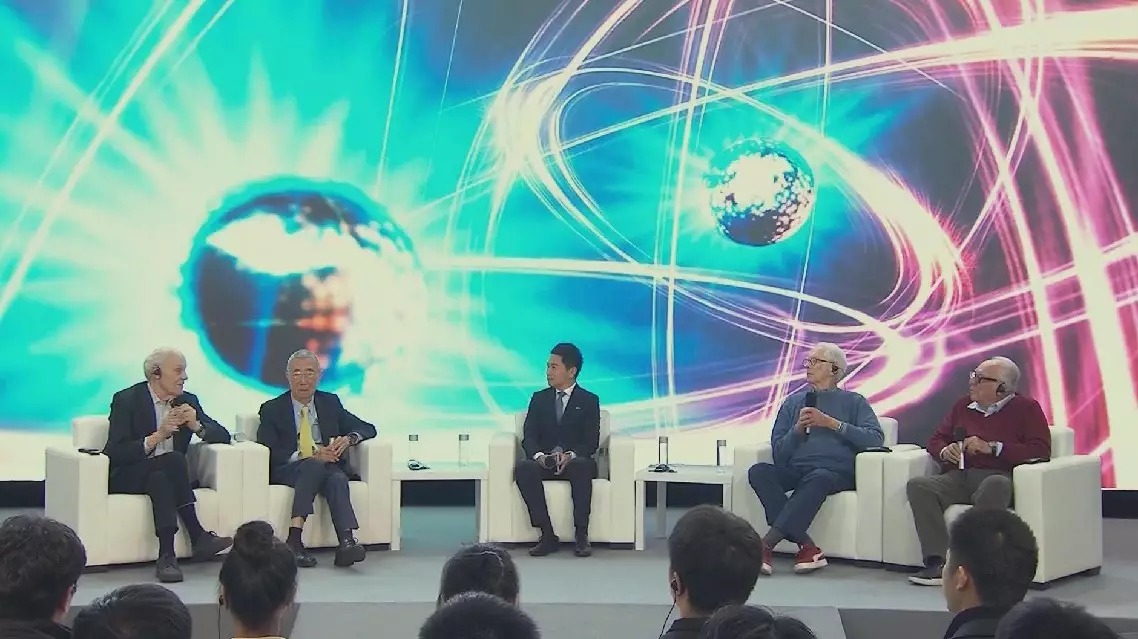
Prominent physicists praise AI's transformative role in science, while warn of creative limitations




